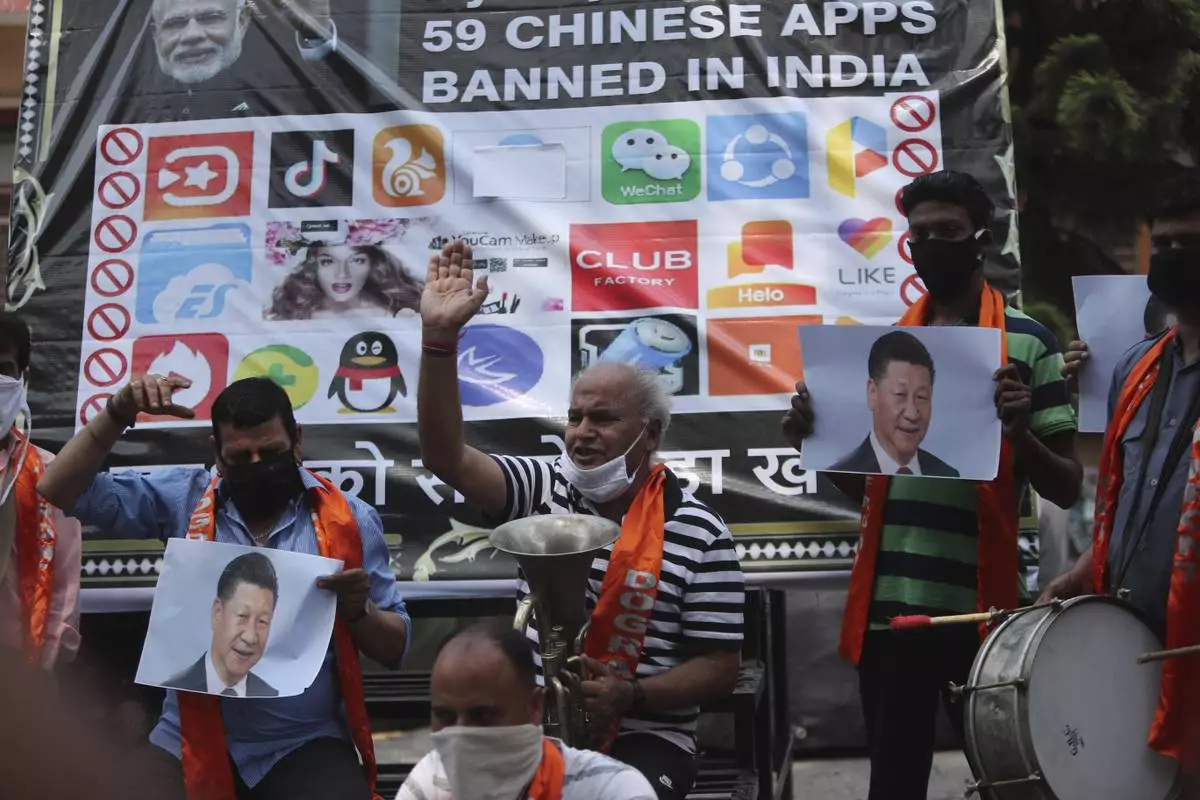The parents of a Houston newborn who suffered a cracked skull and more than 90 fractures just days after being brought home from the hospital were arrested in their daughter's death, according to police and Harris County prosecutors.
Jazmine Robin, who was born prematurely, was 10 weeks old when she died July 15, 12 days after leaving the hospital, prosecutors said Monday.
Her father, 24-year-old Jason Paul Robin, is charged with murder. Her mother, 21-year-old Katharine Wyndham White, faces a count of injury to a child by omission.

This photo provided by the Houston Police Department shows Katharine Wyndham White. White, the mother of a Houston infant, has been charged in her death after an autopsy found the child suffered a cracked skull and more than 90 fractures just days after being brought home from the hospital. Harris County prosecutors said Monday, June 24, 2019, that Jazmine Robin, who was born prematurely, was 10 weeks old when she died July 15, 2018, 12 days after leaving the hospital. Her father, 24-year-old Jason Paul Robin, and her mother, White, are facing charges. (Houston Police Department via AP)
"The evidence shows that Baby Jazmine fell victim to the very people who were supposed to protect her the most in this world," Harris County District Attorney Kim Ogg said. "After a full and thorough investigation of the facts, we have filed charges, and will seek justice for young Jazmine."
Detectives last July were called to a Houston hospital after staff there found "clearly inflicted head trauma," according to a Houston police affidavit.
An autopsy that was completed last month determined the girl's death was caused by blunt force trauma to the head. Investigators believe Jazmine's crying would anger Robin and he violently shook the newborn, according to the affidavit. The child suffered multiple fractures to several ribs — 71 rib fractures in all — and 23 "long bone" breaks.
"It is concluded that a minimum of two traumatic events resulted in 96 fractures," the affidavit said.
It took several months to complete the autopsy because those done on infants, and related testing, generally take much longer than ones done on adults, authorities said.
Robin and White were being held Tuesday in the Harris County jail. Online jail records don't indicate whether either has an attorney to speak on their behalf. They face life sentences if convicted on the charges.
Robin told an investigator that he read psychology books in an effort to control his anger and said Jazmine "is too beautiful to hit." White blamed the child's brain injury on hospital personnel who administered CPR on Jazmine for an hour, the affidavit said. White later told authorities a woman who also lived at their residence was likely to blame for the girl's injuries.
Follow David Warren on Twitter: https://twitter.com/WarrenJourno
NEW DELHI (AP) — The hugely popular Chinese app TikTok may be forced out of the U.S., where a measure to outlaw the video-sharing app has won congressional approval and is on its way to President Biden for his signature.
In India, the app was banned nearly four years ago. Here's what happened:
In June 2020, TikTok users in India bid goodbye to the app, which is operated by Chinese internet firm ByteDance. New Delhi had suddenly banned the popular app, alongside dozens other Chinese apps, following a military clash along the India-China border. Twenty Indian and four Chinese soldiers were killed, and ties between the two Asian giants plunged to a new low.
The government cited privacy concerns and said that Chinese apps pose a threat to India’s sovereignty and security.
The move mostly drew widespread support in India, where protesters had been calling for a boycott of Chinese goods since the deadly confrontation in the remote Karakoram mountain border region.
“There was a clamour leading up to this, and the popular narrative was how can we allow Chinese companies to do business in India when we’re in the middle of a military standoff,” said Nikhil Pahwa, a digital policy expert and founder of tech website MediaNama.
Just months before the ban, India had also restricted investment from Chinese companies, Pahwa added. “TikTok wasn’t a one-off case. Today, India has banned over 500 Chinese apps to date.”
At the time, India had about 200 million TikTok users, the most outside of China. And the company also employed thousands of Indians.
TikTok users and content creators, however, needed a place to go — and the ban provided a multi-billion dollar opportunity to snatch up a big market. Within months, Google rolled out YouTube Shorts and Instagram pushed out its Reels feature. Both mimicked the short-form video creation that TikTok had excelled at.
“And they ended up capturing most of the market that TikTok had vacated,” said Pahwa.
In India, TikTok content was hyperlocal, which made it quite unique. It opened a window into the lives of small-town India, with videos coming from tier 2 and 3 cities that showed people doing tricks while laying down bricks, for example.
But for the most part, content creators and users in the four years since the ban have moved on to other platforms.
Winnie Sangma misses posting videos on TikTok and earning a bit of money. But after the ban, he migrated to Instagram and now has 15,000 followers. The process, for the most part, has been relatively painless.
“I have built up followers on Instagram too, and I am making money from it, but the experience isn’t like how it used to be on TikTok,” he said.
Rajib Dutta, a frequent scroller on TikTok, also switched to Instagram after the ban. “It wasn’t really a big deal,” he said.
The legislation to outlaw the app has won congressional approval and now awaits a signature from Biden.
The measure gives ByteDance, the app’s parent company, nine months to sell it, and three more if a sale is underway. If this doesn’t happen, TikTok will be banned. It would take at least a year before a ban goes into effect, but with likely court challenges, it could stretch longer.
In India, the ban in 2020 was swift. TikTok and other companies were given time to respond to questions on privacy and security, and by January 2021, it became a permanent ban.
But the situation in the U.S. is different, said Pahwa. “In India, TikTok decided not to go to court, but the U.S. is a bigger revenue market for them. Also, the First Amendment in America is fairly strong, so it’s not going to be as easy for the U.S. to do this as it was for India,” he said, in reference to free speech rights in the U.S. Constitution.
As Chinese apps proliferate across the world, Pahwa says countries need to assess their dependency on China and develop a way to reduce it as the apps can pose a national security risk.
The app is also banned in Pakistan, Nepal and Afghanistan and restricted in many countries in Europe.
“Chinese intelligence law and its cybersecurity law can allow Chinese apps to work in the interest of their own security. That creates a situation of distrust and it becomes a national security risk for others,” said Pahwa.
“There should be different rules for democratic countries and for authoritarian regimes where companies can act as an extension of the state,” he added.
—-
This story corrects the expert's erroneous reference to Fourth instead of First Amendment.

FILE- Activists of Jammu and Kashmir Dogra Front shout slogans against Chinese President Xi Jinping next to a banner showing the logos of TikTok and other Chinese apps banned in India during a protest in Jammu, India, July 1, 2020. (AP Photo/Channi Anand, File)











